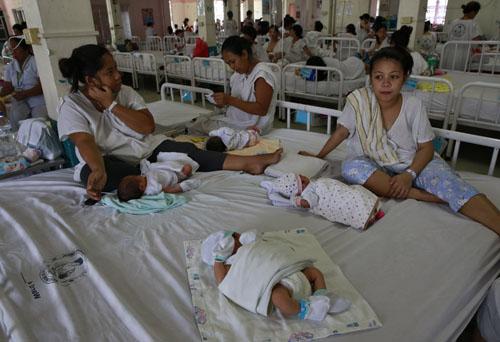You are here
Fearing global spread WHO creates Zika response unit
By AFP - Feb 02,2016 - Last updated at Feb 02,2016
GENEVA — The World Health Organisation (WHO) said on Tuesday it had created a global unit to respond to the Zika virus, voicing fears the disease blamed for a surge in birth defects in South America could spread across Africa and Asia.
"We have now set up a global response unit, which brings together all people across WHO in headquarters, in the regions, to deal with the formal response to Zika,” said WHO expert Anthony Costello.
The UN health body had said on Monday that a surge in cases in South America of microcephaly — a devastating condition in which a baby is born with an abnormally small head and brain — was likely caused by the mosquito-borne Zika virus, and declared the situation a "public health emergency of international concern".
The WHO is under pressure to move swiftly to tackle Zika, after admitting it was slow to respond to the recent Ebola outbreak that ravaged parts of west Africa.
Costello, a paediatrician and an expert on microcephaly, told reporters in Geneva that the WHO's new response unit would aim to use "all the lessons we've learned from the Ebola crisis" to help quickly address Zika, and the birth defects and neurological conditions it is believed to cause.
He emphasised the urgency of rapid action, stressing there was no reason to believe the crisis would remain limited to South America, where 25 countries so far have reported Zika cases.
"We are worried that this could also spread back into other areas of the world where the population may not be immune, and we know that the mosquitos that carry Zika virus are present through most of Africa, parts of southern Europe and many parts of Asia, particularly south Asia," he said.
Cape Verde hit
Underlining his point, Thai officials announced on Tuesday that a man had contracted the virus in the country.
Cape Verde, which lies off the coast of west Africa, has also already reported domestic Zika cases.
Jitters over the virus have spread far beyond the affected areas to Europe and North America, where dozens of cases have been identified among travellers returning from Latin America.
Zika is transmitted by the Aedes aegypti mosquito, which also spreads dengue fever, and was first discovered in Uganda in 1947.
"Given that there is a vector, and given that we are in a global world, and presumably it crossed the Atlantic at some stage to get into Latin America, there is no reason particularly to think it couldn't travel in the opposite direction," Costello said.
Related Articles
MONTEVIDEO — South American health ministers held an emergency meeting Wednesday on slowing the spread of the Zika virus, dubbed a "nightmar
GENEVA — The Zika virus is "spreading explosively" in the Americas, the head of the World Health Organisation said Thursday, as the global h
GENEVA — The World Health Organisation (WHO) called on Wednesday for $56 million for its plan to combat the Zika virus, a disease that has b













